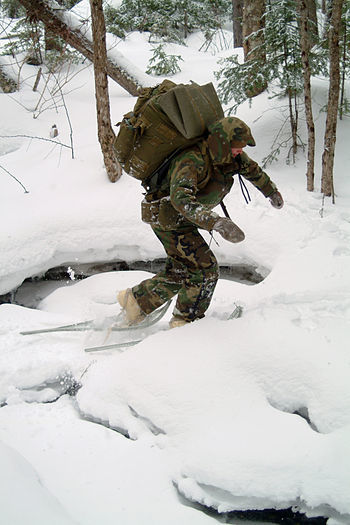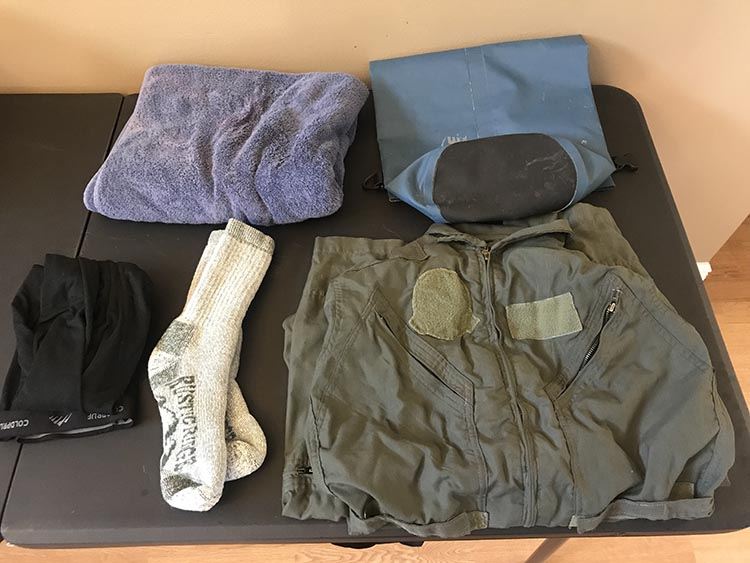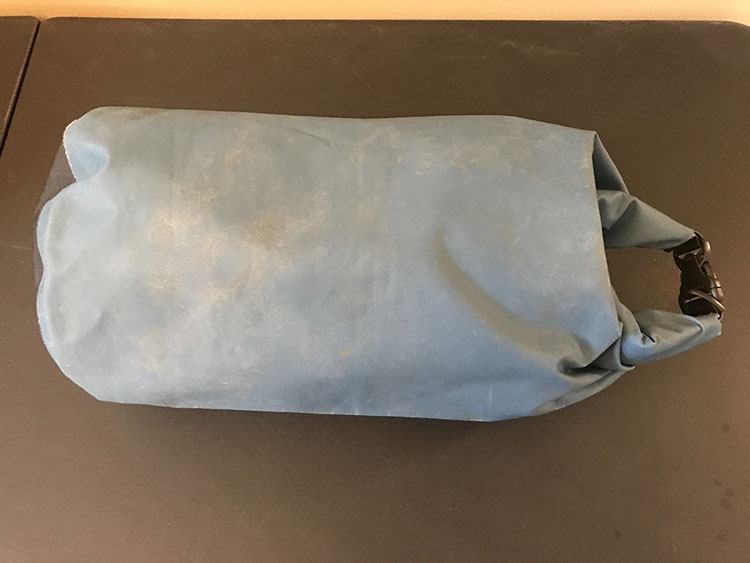This is a worst-case scenario anglers never think of, and could easily kill them if they’re unprepared.
More...
Thanks to the toughest Marine Corps institutions I have learned what it's like to be miserably cold.
Have you ever swam across open water, with no wetsuit, in the dead of January in North Carolina?
I have. All thanks to Bulk Fuel.
Our instructors took us to the bleeding edge of hypothermia, to weed out the weak and show us how dangerous it was so we'd know to avoid it in an operational environment.

SERE School is amazing, you're just cold and wet all the time. I give it five stars.
By now you’re probably thinking “What the heck does this have to do with inshore fishing?”
A lot.
During those trying times I witnessed some of the Marine Corps' toughest men drop like flies before turning blue and being evacuated to receive medical attention.
So, if they couldn't hack it against the elements, could you?
Probably not.
If you’ve spent your life avoiding such unpleasantry (smart on your part) then there is no way you can know.
And because you don’t, you may not be prepared when the worst happens.
The difference is that nobody will be there to save you and more than your fishing trip will end unexpectedly.
Don’t Fall in the Water
The odds of an angler hyping out are pretty darned good during the winter.
Think about it, what is surrounding you in the marsh?
That’s right, a lot of water.
What’s between you and the nearest shelter? Probably a lot of water.
Consider This Example
Stump Lagoon, a popular trout spot in the winter, is a twelve mile run from the nearest marina.
Imagine being soaking wet, running 35mph through near-freezing temperature.
Would you make it?
Not without suffering greatly, or worse.
You probably get the picture by now.
So, keep reading to see how you can be prepared for this worst case scenario.
Spare Clothes and a Dry Bag
If you fall in the water you need to get back in your boat, get dry and change clothes.
It's mandatory in order to survive and a lot easier if the following items are safely tucked away in a waterproof bag:

These items stay in my boat in case the worst happens.
I think it’s obvious you’d use the towel to dry off. ;)
It may not be so obvious that you’d need to strip off wet clothes to do this. All of them.
It's miserable, but you'll get dry faster to put on fresh clothes.
Thick wool socks, thermals and a flight suit (to fit other people, should they need it) are all good choices.
You can bring spare shoes if you'd like, but the key detail is a good dry bag.
No boat storage is truly dry and, even if it were, I wouldn’t trust it with my life.

I’ve used dry bags with waterproof zippers, but prefer the kind that fold to create a seal. A 30 liter dry bag is plenty big enough to put everything inside, and this is the kind I use.
Note
You don’t have to pack the exact items I have. Just pack something that is warm and can get you back to the boat launch.
Conclusion
Inshore fishing is fun but – like anything – has its dangers.
Smart inshore anglers recognize these, prepare for them, and help others do the same.
Having a dry bag with spare clothes is one way of doing that. This way you fish with peace of mind.
Do you have your own kit that you keep? How do you prepare for this worst case scenario? Comment below!

Hey Tom, that’s great advice. Thanks for adding it in here and THANK YOU for reading.
Tight lines!
Good info ppl don’t think about, I have clothes stored in a garage bag in a plastic tote, also have breathable painters cover all’s in case your stranded over night in the summer. Always try to prepare to spend the night in your boat if you really needed.
Well said. Thanks for commenting, Bill!
Dennis, those are awesome tips! Thank you so much for sharing!
Devin,
I’ve been through water survival training almost a dozen times in the last 20 years. Hope I never have to use it. If you get wet get dry. If you don’t have spare clothes ring out your wet clothes and put them back on they will still retain ~50 to 60 % of there warming capability depending on your clothing.
Good rain gear will block the wind even over wet clothes. Motorcycle riding rain gear can be some of the better quality and cheaper than the mid to high quality marine rain gear. In shallow water you could be stuck in the mud.
If you don’t have a ladder on your boat the standing on the lower unit of the motor, the trim switch can help you get back in the boat. Just remember when things go bad on the water it quickly gets worse even if your think your prepared.
If your fishing alone and fall overboard, you could be exhausted by the time you get back in the boat.
https://youtu.be/ltXa8cG2s_k
Safe boating and tight lines.
Dennis
As a scoutmaster in the 80’s my troop did a lot of winter canoeing including some whitewater. Everyone brought a sealed pickle bucket a towel and change of clothes. We knew we only had a very few minutes to get the wet kid out of the water, dried off and in dry warm clothes. Hypothermia is deadly. Great message Capt Devin!
Your local army surplus store is a good place to look. :)
Flight suit is a great idea!
Where might I find one?
That’s a great idea, thanks for sharing!
Thanks
Recently I have individually vacuum sealed a set of clothes for me. my son and wife and stored them in the boat. This doesn’t take up much space i have them strapped in side my centre console compartment
Ahhhh, that’s a very good point.
Getting up and out of the water is difficult unless one is a strong swimmer, so practicing it before hand is a great idea.
Jeff, that’s a good question.
Yes, it’s that much easier to fall in, for sure.
I’m wondering if a dry suit wouldn’t be a better idea, or even a wetsuit, so you are at least insulated from the initial immersion.
I suppose you could carry a dry bag and change out on shore, as well.
Most excellent. Thanks for commenting!
Thanks Capt!
Awesome advice!!
I Completely forgot about spares clothes this past winter, which I’ve always had years before.
After we cleaned out & re-stocked the boat we forgot (or if y’all change boats). Don’t forget ur emergency gear!
Appreciate the reminder & the Dry Bag thing Capt!!
This is an excellent article, especially those that fish with a boat and may have to drive twelve miles back to the launch going 35 mph. But I do have a follow up question. I also like to fish out of a kayak and yes, sometimes in the winter. Chances are, I might tip over in that kayak easier than a boat. Any suggestions here? Do I still carry a dry bag, pull myself to a shoreline and get dressed there or what? I’ll wait for your response. Thanks.
Good advice Devin and another good piece is to be sure you can get back in your boat unassisted while wearing your life jacket. Smart to practice that in the summer time to avoid surprises when you are alone and up to your neck in cold water!
Hey Randy, thanks for commenting.
In the article I provide an Amazon link.
Otherwise I suggest trying an outdoors store like Academy, Sportsman’s Warehouse, Dick’s Sporting Goods, Bass Pro, etc.
Just make sure you get at least a 20 liter bag. Anything smaller may not be big enough.
Where can you find a place that sells a good dry bag.